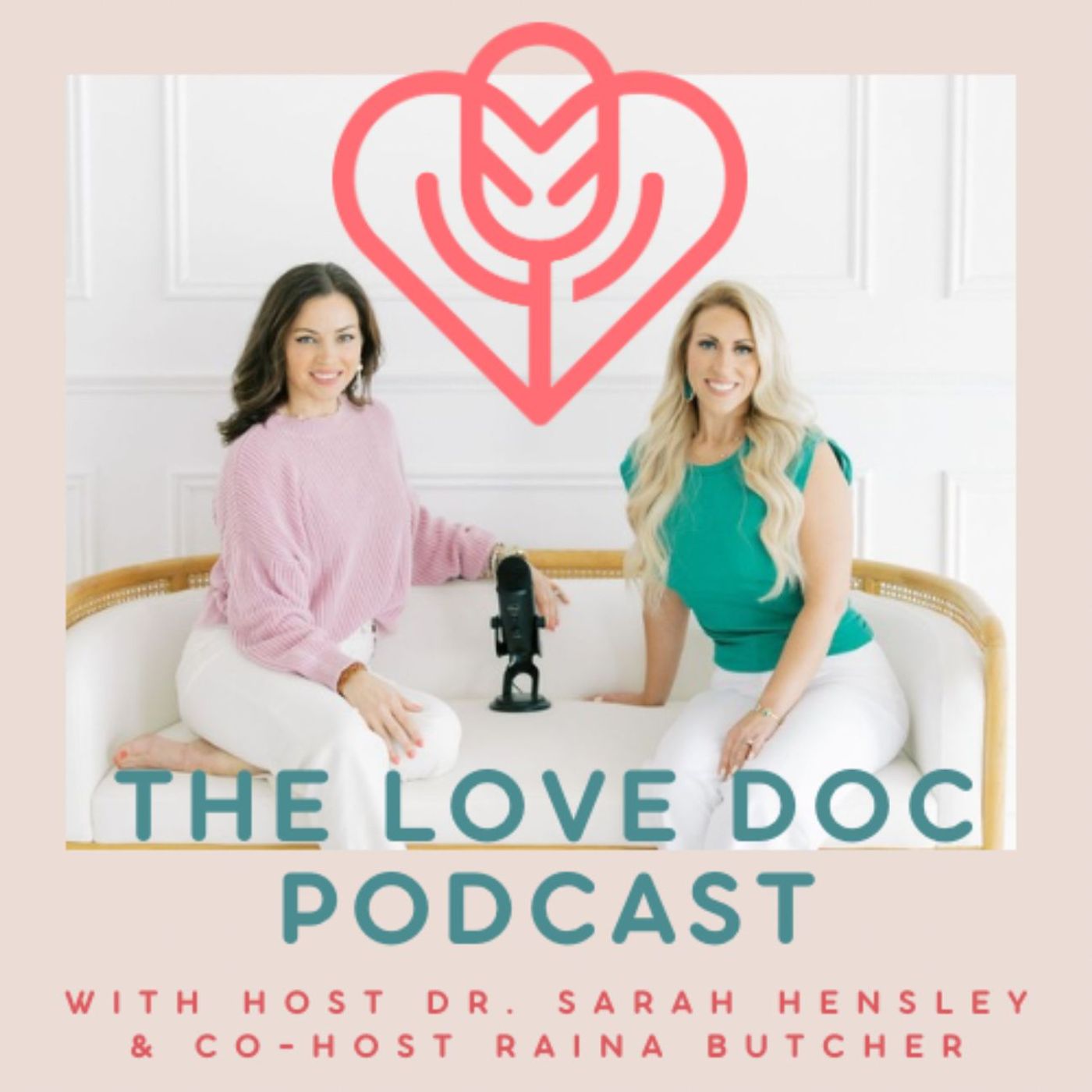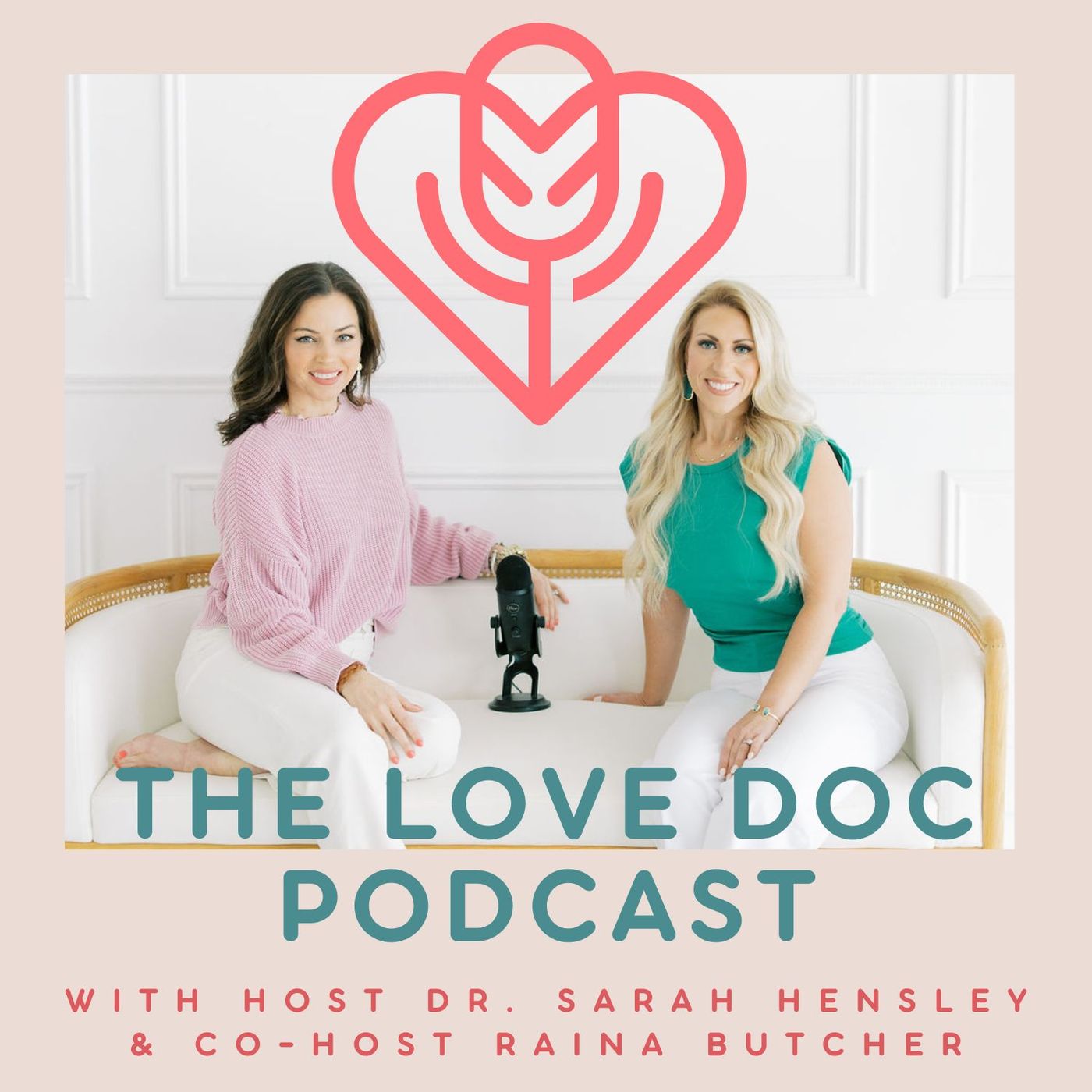Episode 20 | Taking Back Your Personal Power
Update: 2024-10-01 1
1
Description
Hosted by Dr. Sarah Hensley, Specialized Social Psychologist, Attachment Theory Expert, and Founder & CEO of The Dating Decoder with Co-host Raina Butcher, Owner/CEO of Joyful Consulting, LLC. Welcome to "The Love Doc Podcast" where Host Dr. Sarah Hensley and her co-host Raina Butcher dive deep into the intricacies of love, attraction, attachment, relationships, and self-awareness. Dr. Hensley brings a wealth of knowledge and experience to help listeners navigate the complexities of modern romance. In each episode, Dr. Hensley tackles burning questions about love, relationships, and the mind’s complexities, drawing from her psychological research, real-life experiences, and her own individual expertise, to provide insightful perspectives and practical advice. Episode 20: "Taking Back Your Personal Power." In this compelling episode, Dr. Hensley dives deep into the concept of personal power, highlighting that no one can truly "take" our power; instead, we often surrender it, many times without realizing we’re doing so. Dr. Hensley explains that certain relationship dynamics, especially those involving a narcissist or a dismissive avoidant, are more prone to creating a sense of lost power for one partner. Dr. Hensley gives an example used by a fellow influencer, called "The Namless Narcissit" Narcissists, how he explains that narcissiste don’t try to control to achieve specific outcomes but rather as a way to prove to themselves that they can. This creates a dictatorial dynamic where the partner being dictated to often feels powerless and trapped. Dr. Hensley shares a vulnerable moment from her own life, discussing a recent experience where she found herself feeling desperate to regain her own sense of power. Admitting to returning to therapy, she explores the ruminating thoughts and the reasons behind her perceived loss of power. She emphasizes the importance of finding a good therapist—one who doesn’t reinforce victimhood but instead helps clients understand that surrendering power is ultimately a choice. Therapists should challenge clients to take ownership of their decisions and help them reclaim their autonomy. Dr. Hensley then explores how different attachment styles manifest in relation to personal power. She notes that dismissive avoidants are typically the ones dictating the tone of the relationship and rarely visibly surrender their power. In contrast, anxious attachment styles, such as anxious preoccupied and fearful avoidant who lean anxious, are more likely to give up their personal power, leading to increased anxiety and emotional turmoil. As the episode progresses, Dr. Hensley discusses what a healthy balance of power looks like in relationships. She outlines three key components of balanced power: (1) both partners taking personal accountability for their behaviors, (2) avoiding blame-shifting, and (3) not getting trapped in rumination or self-pity. Furthermore, maintaining a balance of power includes equitable distribution of daily responsibilities and the ability to pick up slack without building resentment. When both partners can approach these behaviors with mutual respect, grace, and humility, the power dynamics within the relationship remain balanced, fostering a healthy and thriving partnership. To wrap up, both Dr. Hensley and co-host Raina Butcher share personal anecdotes about reclaiming their power and using failed relationships as opportunities for growth. They emphasize that taking back one’s power means being secure in who you are and setting boundaries that limit access to oneself to only those who are willing to reciprocate honor, love, and respect. Ultimately, reclaiming personal power is about stepping into your authentic self and reinforcing your self-worth in every relationship dynamic. Tune in to "The Love Doc Podcast" every Tuesday morning for candid conversations, expert guidance, and a deeper understanding of love and relationships in the modern world. To see all of Dr. Hensley’s services please visit the links below and follow her on social media. Dr. Hensley’s Hybrid Group Coaching: https://www.thedatingdecoder.com/group-coaching/ Book one on one with Dr. Hensley or one of her certified coaches: https://www.thedatingdecoder.com/book-appointment/ Purchase Dr. Hensley’s online course: https://dating-decoder.mykajabi.com/offers/PpEPKnsM/checkout Tik-Tok: the_dating_decoder Instagram: @the_dating_decoder Facebook: The Dating Decoder Youtube: @Dr.SarahHensley What is covered: · The difference in someone taking your personal power and surrendering it. · The most prevelant relationship dynamic where one partner feels a loss of personal power. · The importance of therapy, specifically good therapy, where the therapist does not reinforce victimhood, but instead helps you understand that surrendering personal power is a choice. . How the different attachment styles surrender thier personal power. . What a healthy balance of power looks like in relationships. . Real life examples from both host on how they reclaimed thier personal power after failed relationships. Consider/Ask Yourself · Are you choosing to surrender your personal power? · How are you losing your personal power based on your attachment style? . In what ways are you and your partner balancing power dynamics in your relationship? · Is staying in a state of victimhood stripping you of your personal power? . How can you reclaim your personal power and once and for all become securely attached?
Become a supporter of this podcast: https://www.spreaker.com/podcast/the-love-doc-podcast--6390558/support.
Become a supporter of this podcast: https://www.spreaker.com/podcast/the-love-doc-podcast--6390558/support.
Comments
Top Podcasts
The Best New Comedy Podcast Right Now – June 2024The Best News Podcast Right Now – June 2024The Best New Business Podcast Right Now – June 2024The Best New Sports Podcast Right Now – June 2024The Best New True Crime Podcast Right Now – June 2024The Best New Joe Rogan Experience Podcast Right Now – June 20The Best New Dan Bongino Show Podcast Right Now – June 20The Best New Mark Levin Podcast – June 2024
In Channel






